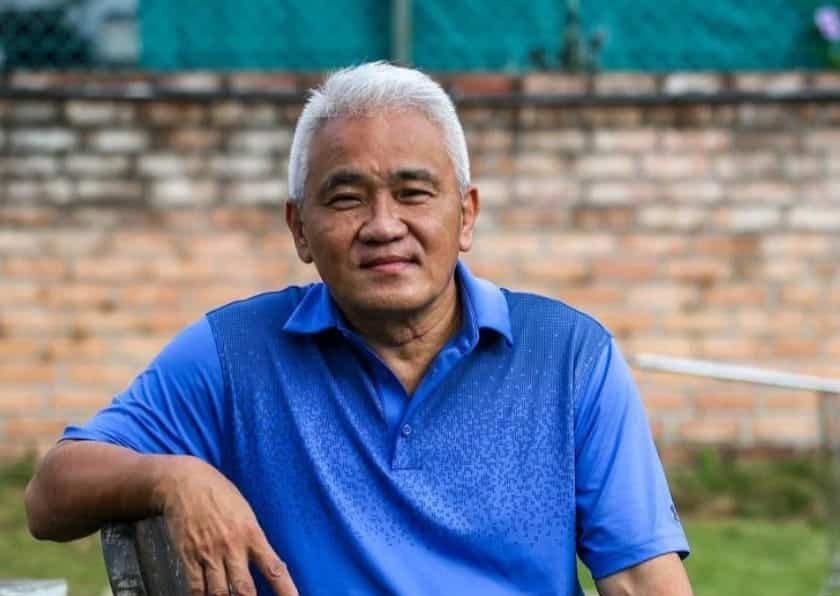“I don’t have anyone to call me Mum anymore”: A mother speaks up about youth mental health after her son’s suicide
by Christine Leow // September 17, 2021, 12:21 am

Photo by Heiner from Pexels.
Trigger warning: This story contains material about the suicide of a minor that some may find distressing.
It has been three years since Jenny Teo, 61, lost her only child to suicide but the heartache is still as fresh.
“We called him Mr Bean. He made me laugh all the time. He liked to joke around.”
Josh Isaac Ng was a sensitive soul with a strong artistic bent. As a child, he was a typical, boisterous boy.
In her eulogy of her son which she posted on Facebook on June 25 this year, Jenny wrote: “When young, Josh’s idea of fun was playing with his Nerf guns.
“His friends would come and he would ensure that each of them would have their own.
“We called him Mr Bean. He made me laugh all the time.”
“They would be on top of his bed, all over the place chasing each other playing soldiers. Guess who ended up picking up all the rubber bullets?
“I didn’t quite mind that actually because when we brought him on a holiday to Brisbane and Vegas to the shooting galleries there, we discovered he could hit the target 9 out of 10.”
Musically talented as well, Josh had a love for rhythms. By age nine, he was accompanying his mum on the drums while she played the guitar during cell group meetings in their home.
At 10, Josh started writing his own books. Like him, they were humorous.
“One of them was called Adventures of Toilet Man. He had an amazing sense of humour,” Jenny told Salt&Light.
When he was 14, Josh became interested in movie-making. His parents bought him a video camera.
“I told him, ‘When you memorise Bible verses, they can come to mind, you can meditate on them anytime.’”
“He would make movies with his friends, making them run up and down the stairs as he filmed them.
“He got me and our domestic helper to be actresses in his films as well,” said Jenny.
By 19, he had become a film buff, making a point to catch new movie releases every weekend. Often, mother and son would make a date of it.
“He liked mostly action-packed movies. Once, we saw The Book of Eli about a man who was transporting the Bible which he had memorised while escaping from people who were after him.
“So, I told him, ‘When you memorise Bible verses, they can come to mind, you can meditate on them anytime.’”
When Josh was 20, just five months shy of his 21st birthday, he killed himself.
The boy who laughed
Josh’s downward slide did not begin till he was a teenager.
At birth, Josh was named Bradley. But he never liked that name.
“We would call him ‘Brad’ for short and he thought it sounded like ‘brat’,” Jenny recalled.
When he was 12, Jenny decided to have him baptised. They then took the opportunity to officially change his name as well.
“The Bible says to speak what you want to see. He was also going to secondary school. It would be a fresh group of friends who never knew him as Bradley.”
Jenny thought of the name Isaac at first because it meant laughter and was so fitting for the boy who always made her laugh. Then, she read the book of Joshua.
“There was the verse ‘Be strong and courageous’ (Joshua 1:9) and I thought Joshua would be a good name because we wanted him to be strong and courageous.
“Joshua also means Jesus. So, we settled on Josh Isaac. The best thing I ever did for my Josh as his mother on earth was to get him saved and baptised.”
The stress that broke the boy
That year was a definitive one for Josh in another way.
A good student right up to Primary 3, he started to struggle with Mathematics and Second Language in upper primary school.
“His friends and their parents were all going for 95 marks. I would have been happy with 50. He was getting 20 upon 100.”
“His behaviour and personality changed. He became so fearful.”
The year he was to take his PSLE, Josh struggled.
Said Jenny: “I would come home from work and find that he had gone to sleep on a pillow that was soaked with his tears. This was just a few months before PSLE.”
Josh developed a fever after that which lasted a week. When he recovered, he refused to go to school.
“His behaviour and personality changed. He became so fearful. He didn’t say very much. I got very worried for him.”
Jenny took him to the Child Guidance Clinic where he was diagnosed with major anxiety disorder. He never returned to school that year.
“I wanted to get him an exemption for PSLE. But I was advised to let him go through it.”
He was diagnosed with major anxiety disorder.
In the months leading up to the exam, Jenny quit her job as General Manager of SAFRA Radio to care for her son, all the while praying for his recovery.
Josh would eventually qualify for the Normal stream but “the whole thing just traumatised him”.
When he started secondary school, he seemed to turn the corner.
“He was relatively happy. He had his small group of friends.”
Too much to bear
In secondary school, Jenny found Josh a Maths tutor and discovered that, with the right motivation, her son could excel in the subject that had brought him so much grief.
“When he took his N levels, he got a distinction for Maths. I attribute it a lot to his tutor.
“There was a lot of conversation, empowering with positive words. There was a relationship, a bond where they could relate to each other.
Looking back, Jenny thinks her son may have been in depression during that period.
“Josh saw him as a mentor and a role model. Because of that, it got him motivated.”
But Josh would face major academic setbacks that would re-open old wounds.
First, he missed being admitted into the polytechnic by just one point. He went into ITE where he, again, missed being admitted into the polytechnic. This time, by just 0.03 points.
“We couldn’t even appeal for him to go to poly. He ended up in a private college. He wasn’t happy there.
“All this affected his self-esteem, his self-worth and his self-confidence. He had wanted to go into TV production.”
Meanwhile, he and his girlfriend of about a year broke up. This was yet another blow.
Looking back, Jenny thinks her son may have been in depression during that period.
“But I didn’t notice because I was in depression.”
Down a dark tunnel
Jenny and her husband divorced in 2014. By 2015, she was in depression. For two years, her days were spent in a daze.
“I wouldn’t brush my teeth. I wouldn’t bathe. Before I knew it, three hours would have gone by. I completely isolated myself, wouldn’t go out, wouldn’t answer text messages.
“My depression was so bad that in October 2016, I wrote a suicide note to my son. But I am glad I never gave it to him.”
The very platform “God used to deliver me from my depression” became one that Jenny used to share the Gospel with someone else.
She saw a psychiatrist and went on medication. She tried to listen to sermons, pray more and meditated on Psalm 23.
“I recited Psalm 23, and meditated day and night on verse 3 that says, ‘He restores my soul.’”
It would get worse before it got better. By June the next year, the suicidal thoughts intensified.
“At that time, I was thinking: If I die, nobody would bother, nobody would even care. Those were very dark thoughts. I couldn’t see a light at the end of the tunnel.”
Then, her sister recommended Words with Friends, an online word game much like Scrabble.
“I downloaded the game and played it almost 24/7 to distract myself from the dark thoughts.”
“I shared with someone (on Words with Friends) about the crucifixion and I led him in the sinner’s prayer and brought him to Christ.”
The game did not lift her spirits but the friendships formed online did. People she played with from around the world started to chat with her on the game’s chat platform.
“God used those to redeem my low self-esteem.”
Within two months, Jenny saw a little of her old self returning. Slowly, she weaned herself off her medication as well.
The very platform “God used to deliver me from my depression” became one that Jenny would use to share the Gospel with someone else.
“After I got out of depression, I was sharing very passionately about God, the Bible, sermons that I had heard.
“Then, I shared with someone about the crucifixion and I led him in the sinner’s prayer and brought him to Christ.”
The perfect storm
As Jenny emerged from her depression in 2017, she discovered that her son was depressed.
“It was just very, very stressful to come out of depression to find that my son was seeing a psychiatrist and taking psychiatric medicine.”
That year, Josh faced a tremendous amount of stress. His on-again-off-again relationship with his girlfriend of three years ended. National Service was particularly brutal for him.
“The pressure and stress were put on him back-to-back. It was like a perfect storm.”
“For someone in depression, they want to isolate themselves. But in the Army, they have to gather every day.
“He would find excuses to just be on his own. People thought he was being lazy, not being cooperative.
“He was taunted, bullied. His camp mates would take his wallet, his phone, his beret. He called me and I had to speak to his supervisor.”
His father also wanted Josh to further his education abroad but, still heartbroken, he was reluctant.
“The pressure and stress were put on him back-to-back. It was just terribly overwhelming. It was like a perfect storm.”
In February 2018, Josh overdosed on tranquillisers. That was his first suicide attempt.
“I found him and rushed him to the hospital. Doctors told me his vital organs were still okay.
“When he came to, I told him what the doctors said. You should have seen the look of disappointment on his face. He was disappointed it didn’t happen.”
A pain too great to bear
The weeks, then months after that first suicide attempt were difficult for Jenny.
“When your child has done it, your thinking is: Oh my gosh, when is he going to do it again?”
“My son told me, ‘Mum, the medication doesn’t help, the family therapist doesn’t help, the youth counsellor doesn’t help.’ ”
She was extra vigilant, putting away anything she thought he could use to hurt himself and keeping a close watch over him. But monitoring a near-adult was not easy, especially when he refused to talk.
“All I could ask him was, ‘Would you like to have lunch? Can I get something for you? Can we pray?’ ”
To cope with his pain, Josh played computer games, hosting games on his own gaming platform. At that time, it looked to Jenny as if he was finally coming out of his grief. On hindsight, she realised he was suffering.
“He can be laughing but that is just his way of coping. You are misguided. You think he is getting better but he is not.
“My son told me, ‘Mum, the medication doesn’t help, the family therapist doesn’t help, the youth counsellor doesn’t help.’ ”
Jenny did not know it then but after Josh passed away, she did the research and found that her son may have been suffering from treatment-resistant depression.
He left behind several suicide notes. All spoke of the great psychological pain he was in and his desire for that to end.
Two weeks before his second attempt, Josh tried to reconcile with his ex-girlfriend. When that failed, he stopped eating and began to lose weight.
But a few days before he would take his life, Josh seemed to perk up.
“He told me, ‘I want to go to youth church.’ I was so happy. I told him, ‘Yes, please go.’
“Little did I know that he was using the opportunity to complete his suicide plan. Two days later, he was gone.”
Josh suffocated himself with a plastic bag over his head in their home. Jenny was the one who found his body.
He left behind several suicide notes to the various people in his life – his father, his mother and his grandmother who lived with him.
Some were hardcopies, others were stored in his handphone. He even recorded a message. All spoke of the great psychological pain he was in and his desire for that to end.
There can be good after
When the blur of activities that came with dealing with the funeral and cremation ceased, Jenny was left to deal with the pain.
There were questions: Was I a bad mother? What did I do wrong?
“Till today, I have never blamed God for what happened.”
There was longing. Jenny met up with her son’s friends to talk about him and discover the Josh they knew. She continues to sleep with his pillow to keep the faint scent of him near her.
There was also trauma. Every time Jenny passed the room where Josh killed himself, her grief was triggered afresh. “I had flashbacks (of the suicide) and suffered from PTSD (post-traumatic stress disorder).”
Mostly, she wept and hung on to God’s Word.
“Romans 5:3-5 which talks about suffering that produces perseverance, perseverance to character, and character to hope.
“And the verse that God works all things for the good of those who love Him. (Romans 8:28).
“Till today, I have never blamed God for what happened because I know that these things are not from God. It is from the power of darkness.”
Five months into her grief journey, God led Jenny onto the path towards closure.
“I will see him again. That’s the hope that I cling on to.”
She was asked by a production company to tell her son’s story in a video. She agreed, hoping that someone else facing the same dark decision her son did would choose life instead.
Doing the video gave Jenny a sense of calm she had not felt in months. It also gave her a newfound purpose.
After its release, Caregivers Alliance Limited, which had supported Jenny after Josh’s first suicide attempt, invited her to share Josh’s story.
“I broke down when I was preparing my script and PowerPoint slides. But I pulled myself together and told myself, ‘Don’t cry. You will be reunited with Josh.’
“I will see him again. That’s the hope that I cling on to.”
That talk to some 80 people was her second closure.
“It was like the Lord spoke to me and said, ‘You haven’t really lost Josh. Now that you are sharing his story, he is with you all the time. He is the focal point of what you are doing.’
“I may miss him physically but spiritually, I feel like we are still together. He is my silent partner now.”
She added in her eulogy: “I may not have anyone to call me Mum anymore but you, Josh Isaac, will always be Mummy’s baby.”
Jenny also started Stigma2Strength Singapore to prevent suicides through public education.
“God has liberated me from the shame, guilt and the condemnation. It’s so important for Christians with lived experience to share.
“It’s not God’s will that any should perish this way. If I can, through my talks, help them remain alive, if hearing something from me causes them to change their minds about ending their lives, then I’ll do it.”
To better equip herself to debunk the myths surrounding suicide and remove the stigma, Jenny embarked on research in suicidology – the scientific study of suicide behaviour, the causes of suicides and its prevention.
Her advocacy has led her to journey with youths and their families. Some contact her from as far as the US and the Philippines after watching the video of Josh’s story.
“God has liberated me from the shame, guilt and the condemnation.”
“I can completely empathise with them. I was there before except I didn’t know anyone then. I don’t want them to have no one to talk to.
“My prayer to God every day is, ‘Lord, please cover the blood of Jesus over the minds of everyone who is thinking of suicide, for them to choose life and not death.’”
There is a possibility that Josh’s story may go digital. After one of the talks Jenny gave, someone approached her to write an e-book.
“Writing a book was something I had in mind last year, but I put it on the shelf because it would take too long and I had no publisher.
“Now, God is orchestrating it. He’s amazing.”
If you know of anyone who is troubled by suicidal behaviour, Jenny can be contacted at [email protected]
RELATED STORIES:
Will talking about suicide make it happen? 7 myths about suicide debunked
“To live is Christ, to die is gain”: A full-time church worker’s struggle with suicide
We are an independent, non-profit organisation that relies on the generosity of our readers, such as yourself, to continue serving the kingdom. Every dollar donated goes directly back into our editorial coverage.
Would you consider partnering with us in our kingdom work by supporting us financially, either as a one-off donation, or a recurring pledge?
Support Salt&Light



